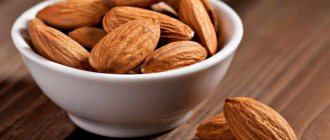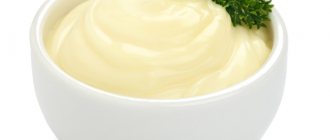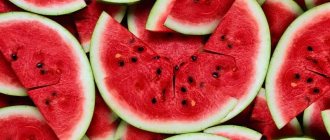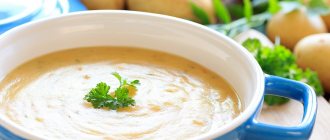The benefits of egg whites for athletes
The most useful part of an egg is the white. This is a natural storehouse of amino acids. It contains valine, leucine, isoleucine. At the same time, the proportions of nutrients are ideal for gaining muscle mass, as if nature itself specially came up with this product for athletes.
Interesting fact: there is a scale for measuring the value of protein for the body. Egg white is taken as a sample. It is he who has a score of 100 points out of 100 on this scale. For comparison, milk protein received a score of 85, fish protein - 80, meat protein - 70, etc.
How many eggs can an athlete eat per day?
Eggs for fitness and bodybuilding are a good source of natural protein. However, this does not mean that they can be consumed unlimitedly.
Even for athletes during the period of active weight gain, the norm of eggs is 10 pcs.;
You can take up to 22 egg whites per day, breaking it into 3-4 servings.
It is worth remembering that 1 whole egg (50 g) contains:
- Calories – 54;
- Carbohydrates – 0.4 g.
- Proteins – 6 gr.
- Fats – 5 gr.
Accordingly, 1 egg white contains 6 grams. squirrel.
Can athletes eat egg yolk?
On this issue, athletes are divided into two camps: some believe that it is possible to eat yolks in moderation, while others completely abandoned the use of yolks, since each yolk contains about 4 g of fat. Science in this case is on the side of the first group of athletes. Although egg yolk is quite high in fat and cholesterol, it is also rich in nutrients and adds nutritional value to the protein.
The main benefit of yolk for athletes is that it provides them with the valuable substance choline, which plays an important role in the normal functioning of the liver. So, if you eat up to 10 eggs a day, 2 of them should be eaten along with the yolk.
What are the benefits and harms of cholesterol?
This lipid-related substance is incredibly important for the body. It supports protective immune functions and is a direct participant in the production of some important hormones, including testosterone and cortisol. The amount of cholesterol produced by the liver is several times greater than that obtained from a dozen eggs.
An increase in total cholesterol in the blood is dangerous for humans, but it has virtually nothing to do with chicken eggs. In addition, as studies have shown, this product does not increase bad cholesterol, but, on the contrary, the body, adapting to its intake with food, begins to produce it in smaller quantities.
What are the benefits of eggs in general?
Now let's not separate the egg into white and yolk and figure out why it is useful for humans, besides the fact that it is a valuable source of protein. In this case, we are talking about benefits for all people, not just athletes.
- Vitamin A in eggs makes the skin elastic, the immune system strong, and vision sharp.
- Vitamins B2, B5, B12 are important for energy metabolism and the nervous system; they also take part in the process of hematopoiesis.
- Vitamin D helps absorb calcium and is important for teeth and bones. Please note that chicken eggs are one of the few foods that are a source of vitamin D.
- Vitamin E from eggs is needed by the nervous, muscular and reproductive systems.
- Biotin supports normal metabolism.
- Choline is beneficial for the liver and supports lipid metabolism.
- Without folic acid, normal fetal development during pregnancy is impossible.
- Iodine, which is quite abundant in eggs, is needed for the health of the thyroid gland.
- Lutein protects against age-related eye diseases.
- Selenium protects against the negative effects of stress.
- Phosphorus is important for bones, teeth and for normalizing metabolic processes.
How many eggs can an adult eat per day?
There is an opinion that you should not eat more than 3-4 eggs a day, otherwise the amount of cholesterol supplied from the yolk can negatively affect the functioning of the cardiovascular system. The concerns are understandable, because 1 egg contains 5 grams. fat and 200 mg. cholesterol.
However, scientists have proven that eating 1-3 whole eggs daily:
- the amount of high-density lipoproteins (good cholesterol) increases;
- triglycerides, the main sources of atherosclerosis and heart disease, are reduced;
- the concentration of lutein and other antioxidants increases.
From all that has been said, adults can drink 1-3 chicken eggs daily, bringing the maximum limit to 21 pieces. in Week.
What is the best way to eat eggs?
You can cook eggs in different ways - soft-boiled or hard-boiled, fried, poached, scrambled eggs or other dishes, combined with various additional ingredients. However, during heat treatment, some of the beneficial properties are lost. On the other hand, raw eggs can infect a person with salmonellosis, parasites, etc. Therefore, the optimal solution is a soft-boiled egg. It retains almost 100% of its beneficial substances, but at the same time eliminates the risk of infection.
Which chicken eggs are healthier?
Let's figure out which eggs are healthier:
- Raw.
Nutritionists assure that raw eggs are the healthiest because they are better absorbed without heat treatment, do not lose their mineral and vitamin complex, and have a beneficial effect on the walls of the stomach, reducing acidity. - Boiled.
Soft-boiled eggs are well absorbed by the body (unlike hard-boiled eggs) due to the fact that their heat treatment is short. They are an excellent alternative to raw eggs, which not everyone is willing to consume. - Fried.
Many people believe that fried eggs are harmful due to the high amount of cholesterol, but this is not entirely true. Eggs contain substances that neutralize the harmful effects of cholesterol on the body, so scrambled eggs can be eaten without fear. Of course, this type of heat treatment is less useful than cooking, but some of the vitamins are still preserved.
Harm to eggs
Here's how chicken eggs can be dangerous:
- Salmonellosis. Eggs can carry this disease, which affects the gastrointestinal tract. People with weakened immune systems and children are at risk of getting sick. To protect yourself from this disease, eggs should be heat treated and you should wash your hands after contact with raw eggs.
- Antibiotics that are fed to chickens. The fact is that on poultry farms, chickens are kept in terrible conditions, which makes them vulnerable to disease. To prevent birds from getting sick, they are fed large amounts of antibiotics. This also affects the quality of the eggs. Eggs with elevated levels of antibiotics disrupt a person's normal microflora, making them vulnerable to disease and resistant to antibiotics if they become ill. Heat treatment destroys antibiotics in eggs.
- Nitrates. Most nitrates accumulate not in plant foods, but in animal products. Poisons and toxins can enter the human body through chicken eggs. This may be dangerous for children and pregnant women.
- Hormones. Sometimes hens are given female hormones to increase the number of eggs they produce. However, the amount of hormones in eggs is much lower than in milk or meat.
- Allergy. Egg allergies are the most common among children. It occurs in approximately 3% of children and is the second most common after peanut allergy. Symptoms of an allergic reaction to eggs are itching, rash, vomiting, nausea, diarrhea, runny nose, dizziness. In severe cases, anaphylactic shock may occur.
To avoid trouble, eat only fresh eggs and buy them from trusted places.
How many eggs can you eat per day when pregnant?
Food for pregnant women, as well as for children, should be carefully selected. Thanks to the choline content in eggs, the baby in the womb develops mentally, protecting the fetus from various abnormalities.
If you eat 1-2 eggs a day, you should not be afraid of cholesterol; in such quantities it will not harm either the expectant mother or her baby. But the vitamins and minerals included in the composition will only benefit.
The main thing is that there is no allergy to eggs or other discomfort when eating them.
Egg Protein Powder
Athletes call egg protein perfect, as it contains all the amino acids a person needs. This protein is incredibly useful, but it is difficult to find it on sale; few manufacturers produce this product. However, even if you find it, the price will be steep, since this is the most expensive type of protein powder.
However, there is a way out! You can use a complete protein powder that contains egg white. It is a complex of casein, whey, milk and egg proteins. It is great for professional and amateur athletes.
Composition and calorie content of eggs
One large 50g hard-boiled egg contains 78 calories, 5g fat (of which 1.6g is polyunsaturated fatty acids), 0.6g carbohydrates and 6g protein. In addition, such an egg contains 3% of the daily value of calcium and 3% of the daily value of iron. Egg white consists of the following amino acids: glutamic acid (1.6% of the egg composition), aspartic acid (1.3%), leucine (1% ), serine (0.9%), lysine (0.9%), isoleucine (0.7%), threonine (0.6%). It is important to note that egg protein (white) is absorbed almost completely.
How to eat eggs - raw or boiled?
The third myth about eggs is that it is best to drink them raw. Again, this claim is easily refuted. Let's start with the fact that raw egg white is much less digestible and overloads the stomach, in addition, there is a danger of getting salmonellosis. It is better to heat-treat the eggs, fry them or boil them. Remember that before cooking an egg, it is advisable to rinse it in hot water - this will create additional protection from microorganisms that live freely on the shell.
Nutritional value of chicken white versus yolk: which to choose?
Which came first: the chicken or the egg? I think it's an egg, since this entire article is dedicated to them. Another controversial question on this topic is which is healthier, chicken white or yolk?
Eggs contain about 6 grams of high quality protein, so high that it is used as the standard by which other foods are measured. Eggs are a rich source of vitamins, including vitamins A, E and K, as well as a number of B vitamins such as B12 (energy), riboflavin and folic acid. Eggs also contain all eight essential amino acids needed for optimal muscle recovery and building valuable minerals such as calcium, zinc and iron.
Eggs are an excellent source of high quality, complete protein that contains few calories. One whole egg contains ~5.5 grams of protein and only ~68 calories. Eggs contain choline, which is very important for the human body as it is not produced in sufficient quantities. Without enough choline, there won't be another nutrient, folic acid.
Let's take a closer look at each of the components of the egg.
Protein
Egg whites are a low-calorie, low-fat food. They contain the bulk of protein at about 4 grams, 55 mg of sodium and only 17 calories. It also contains 1.3 micrograms of folic acid, 6.6 micrograms of selenium, 2.3 mg of calcium, 3.6 mg of magnesium, 4.9 mg of phosphorus and 53.8 mg of potassium.
Yolk
Why don't bodybuilders eat yolk? Egg yolks are the part of the egg that contains cholesterol, fat, and saturated fat. And it is believed that they are harmful and may not fit into the diet. However, many people forget that the yolk contains a ton of nutrients, fat-soluble vitamins, and essential fatty acids. One egg yolk contains about 55 calories, 4.5 grams of fat and 1.6 grams of saturated fat, 210 mg of cholesterol, 8 mg of sodium and 2.7 grams of protein.
The table below, compiled by the National Food Database, compares the nutritional content of egg whites and yolks and the percentage of total nutritional value of each.
Nutrients: Egg Yolk vs. Egg White
| Nutrient | Protein | Yolk | % total in protein | % total in yolk |
| Protein | 3.6 g | 2.7 g | 57% | 43% |
| Fat | 0.05 g | 4.5 g | 1% | 99% |
| Calcium | 2.3 mg | 21.9 mg | 9.5% | 90.5% |
| Magnesium | 3.6 mg | 0.85 mg | 80.8% | 19.2% |
| Iron | 0.03 mg | 0.4 mg | 6.2% | 93.8% |
| Phosphorus | 5 mg | 66.3 mg | 7% | 93% |
| Potassium | 53.8 mg | 18.5 mg | 74.4% | 25.6% |
| Sodium | 54.8 mg | 8.2 mg | 87% | 13% |
| Zinc | 0.01 mg | 0.4 mg | 0.2% | 99.8% |
| Copper | 0.008 mg | 0.013 mg | 38% | 62% |
| Manganese | 0.004 mg | 0.009 mg | 30.8% | 69.2% |
| Selenium | 6.6 mcg | 9.5 mcg | 41% | 59% |
| Vitamin B1 | 0.01 mg | 0.03 mg | 3.2% | 96.8% |
| Vitamin B2 | 0.145 mg | 0.09 mg | 61.7% | 48.3% |
| Vitamin PP | 0.035 mg | 0.004 mg | 89.7% | 9.3% |
| Vitamin B3 | 0.63 mg | 0.51 mg | 11% | 89% |
| B6 | 0.002 mg | 0.059 mg | 3.3% | 96.7% |
| Folic acid | 1.3 mcg | 24.8 mcg | 5% | 95% |
| B12 | 0.03 mcg | 0.331 mcg | 8.3% | 91.7% |
| Vitamin A | 0 IU | 245 IU | 0% | 100% |
| Vitamin E | 0 mg | 0.684 mg | 0% | 100% |
| Vitamin D | 0 IU | 18.3 IU | 0% | 100% |
| Vitamin K | 0 IU | 0.119 IU | 0% | 100% |
| Dehydroepiandrosterone and AA | 0 | 94 mg | 0% | 100% |
| Carotenoid | 0 mcg | 21 mcg | 0% | 100% |
As you can see from the table, the egg yolk contains more nutrients, but in my opinion, a whole egg provides a more complete set of nutrients.
At different times, there were different recommendations from nutritionists regarding which part of the egg was best. A new study has found that moderate egg consumption does not have a negative impact on cholesterol levels. Regular consumption of two eggs per day does not affect a person's lipid metabolism and may even improve it.
Research shows that saturated fats raise cholesterol levels, and eggs contain dietary cholesterol. However, if you have coronary artery disease or other heart problems due to high cholesterol, the recommendations for you remain the same - limit your cholesterol intake.
What about the fat contained in eggs, you ask. I hasten to reassure you, the white does not contain fat, but the yolk of a chicken egg contains about 5 grams of fat, but only a small part of it is saturated (bad fat) - about 1.6 grams. Bodybuilders seeking to pump up their muscles should include fats in their diet, since energy costs during training are colossal, and these costs need to be replaced somehow.
Eggs contain cholesterol, but it is classified as dietary because it does not increase blood cholesterol levels. Eggs are easy to digest and digest, extremely healthy, and an integral part of a balanced diet for bodybuilders.











